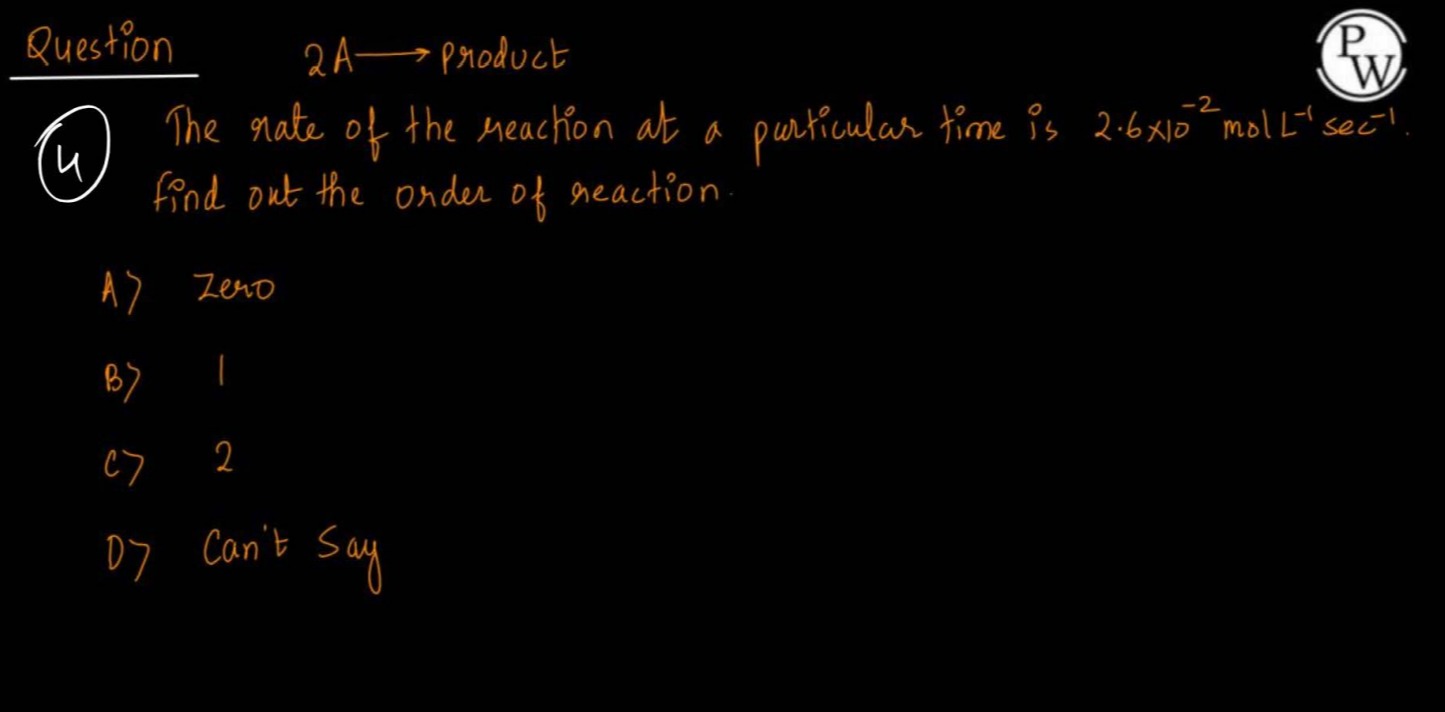Question
Question: Question 2A$\longrightarrow$product The rate of the reaction at a particular time is 2.6$\times10^{...
Question 2A⟶product
The rate of the reaction at a particular time is 2.6×10−2 mol L−1sec−1. find out the order of reaction.

Zero
1
2
Can't Say
D) Can't Say
Solution
The rate of a chemical reaction is defined as the change in concentration of a reactant or product per unit time. Regardless of the order of the reaction, the standard units for the rate of reaction are always concentration×time−1.
In this question, the rate of the reaction is given as 2.6×10−2 mol L−1sec−1. The units mol L−1sec−1 (or M sec−1) are the standard units for the rate of any reaction.
The order of a reaction is determined by the units of its rate constant (k), not by the units of the reaction rate itself. Let's look at the units of the rate constant for different orders:
-
Zero Order Reaction (n=0): Rate =k[A]0=k Units of k = Units of Rate = mol L−1sec−1
-
First Order Reaction (n=1): Rate =k[A]1 Units of k=Units of ConcentrationUnits of Rate=mol L−1mol L−1sec−1=sec−1
-
Second Order Reaction (n=2): Rate =k[A]2 Units of k=(Units of Concentration)2Units of Rate=(mol L−1)2mol L−1sec−1=mol2 L−2mol L−1sec−1=L mol−1sec−1
Since the given information is the rate of the reaction and not the rate constant, the units provided (mol L−1sec−1) are simply the standard units for reaction rate and do not provide any specific information about the order of the reaction. To determine the order, one would need the units of the rate constant, or experimental data showing how the rate changes with reactant concentrations.
Therefore, based solely on the given information, the order of the reaction cannot be determined.
